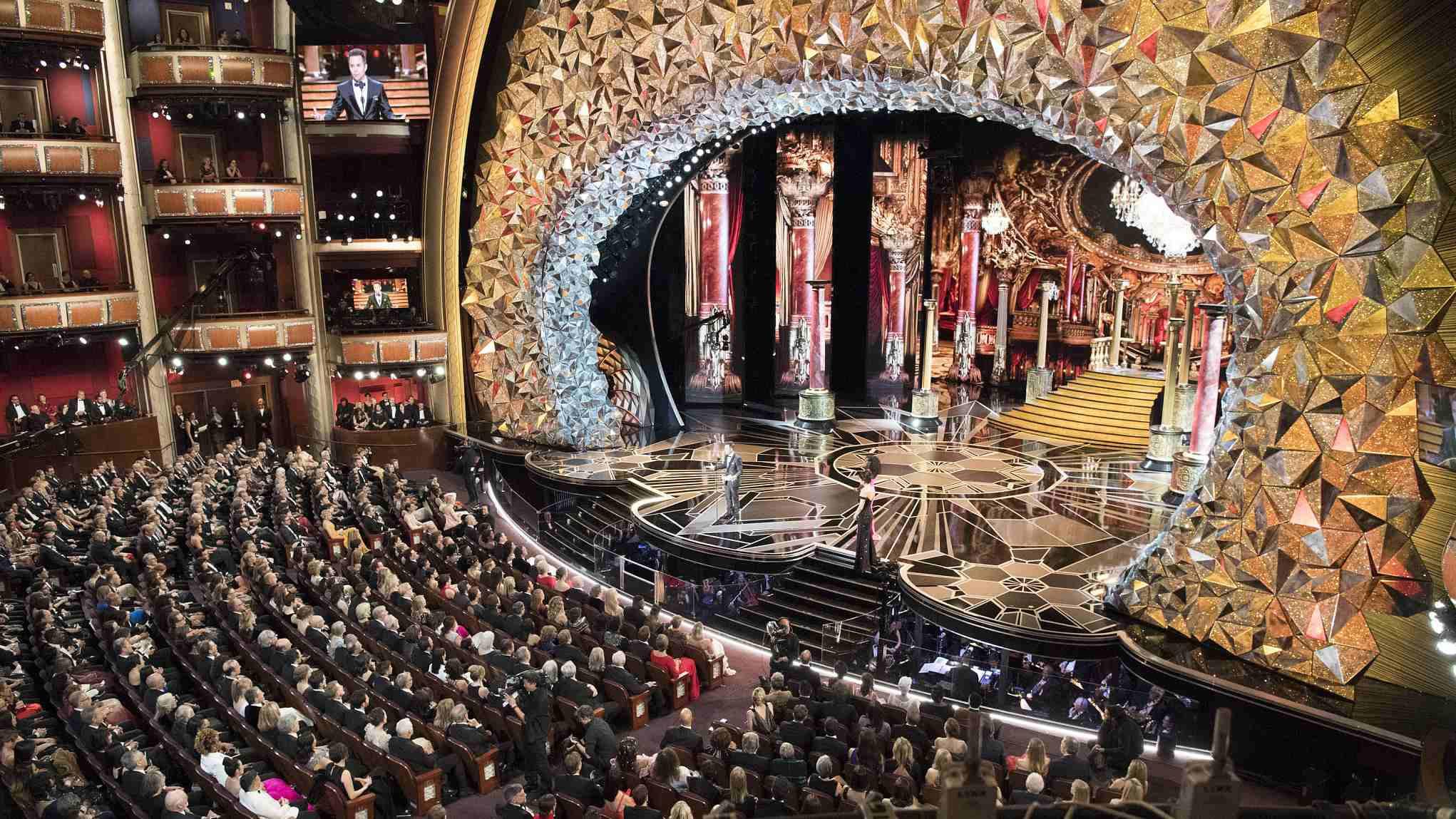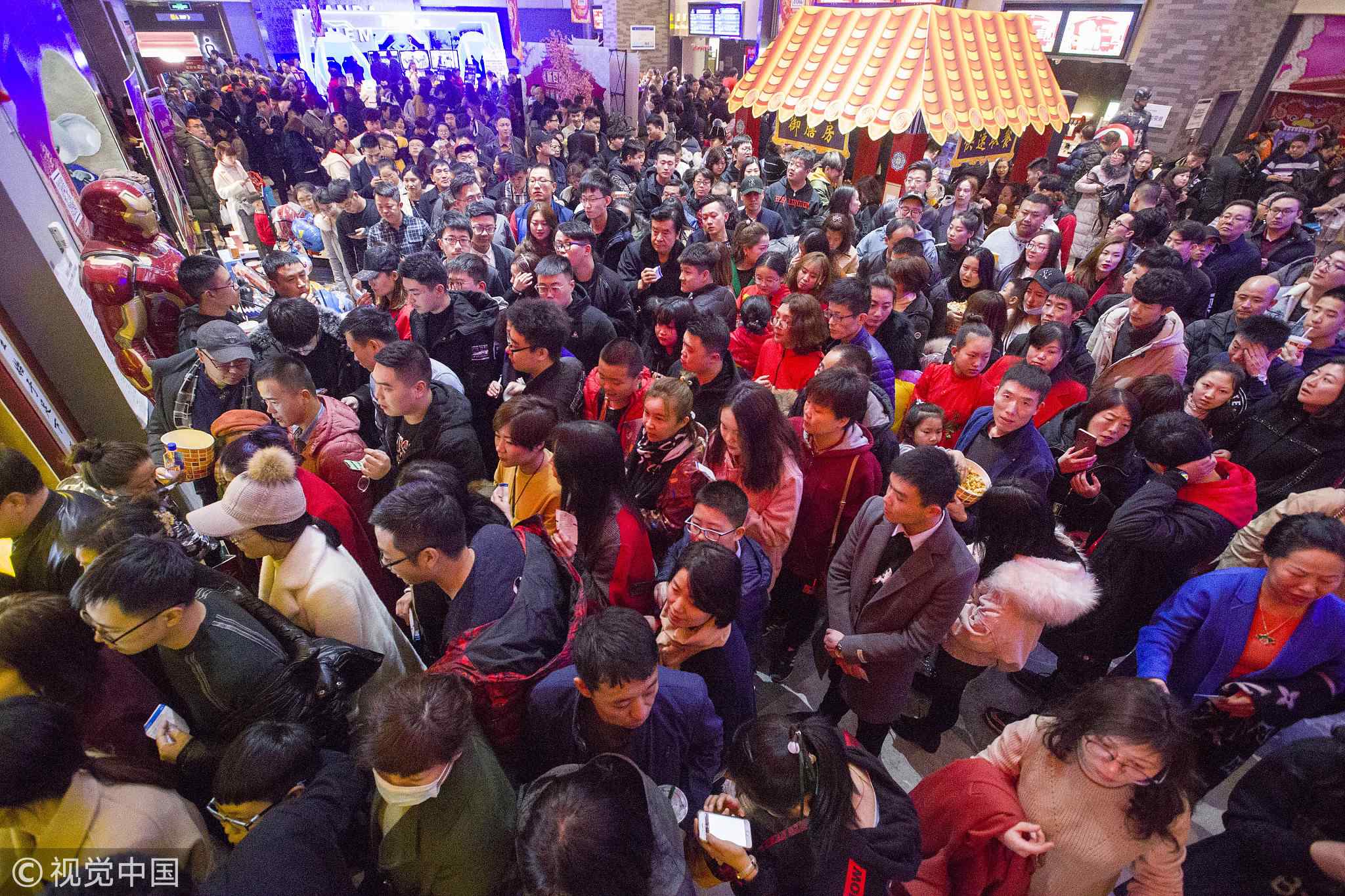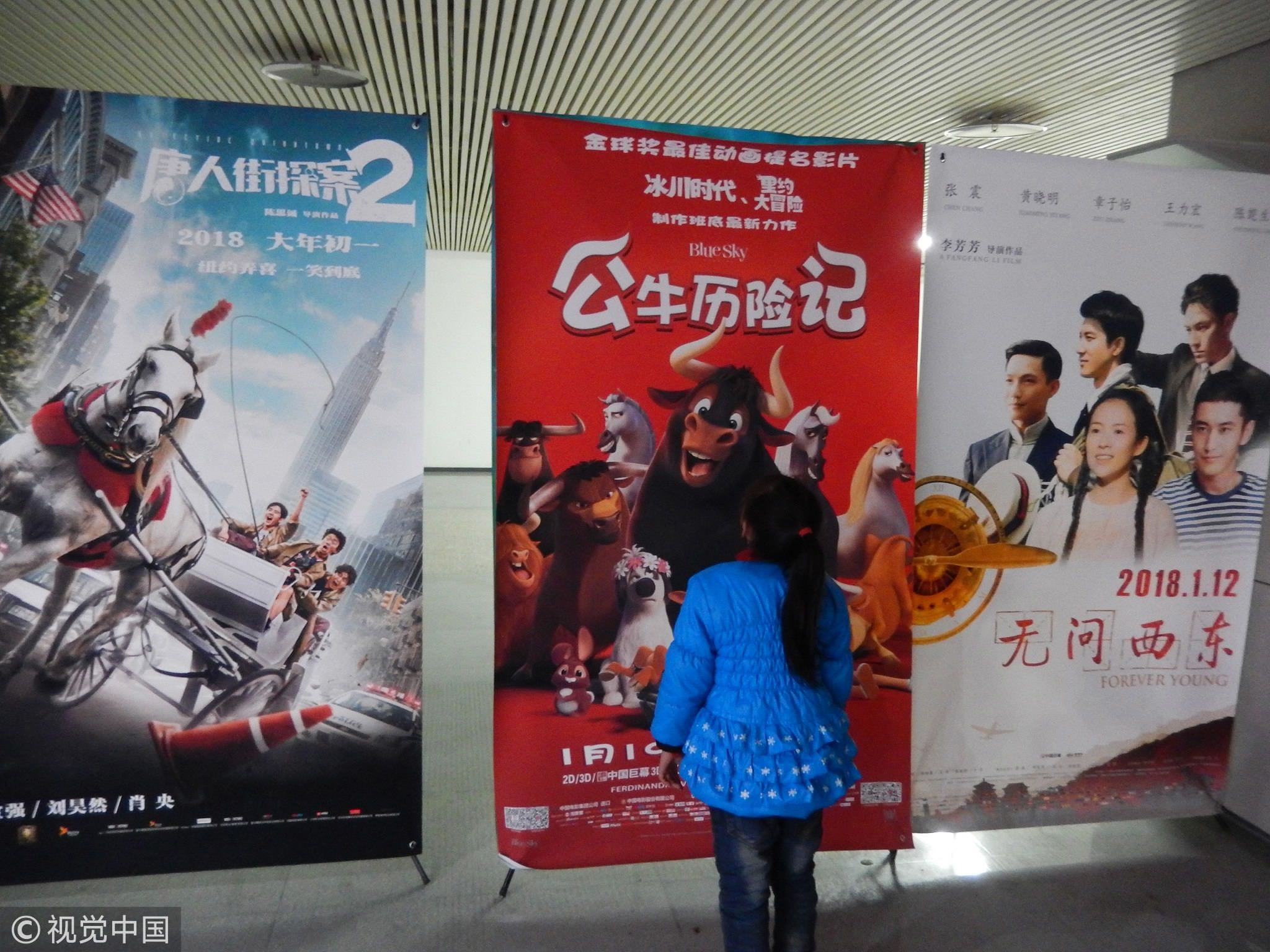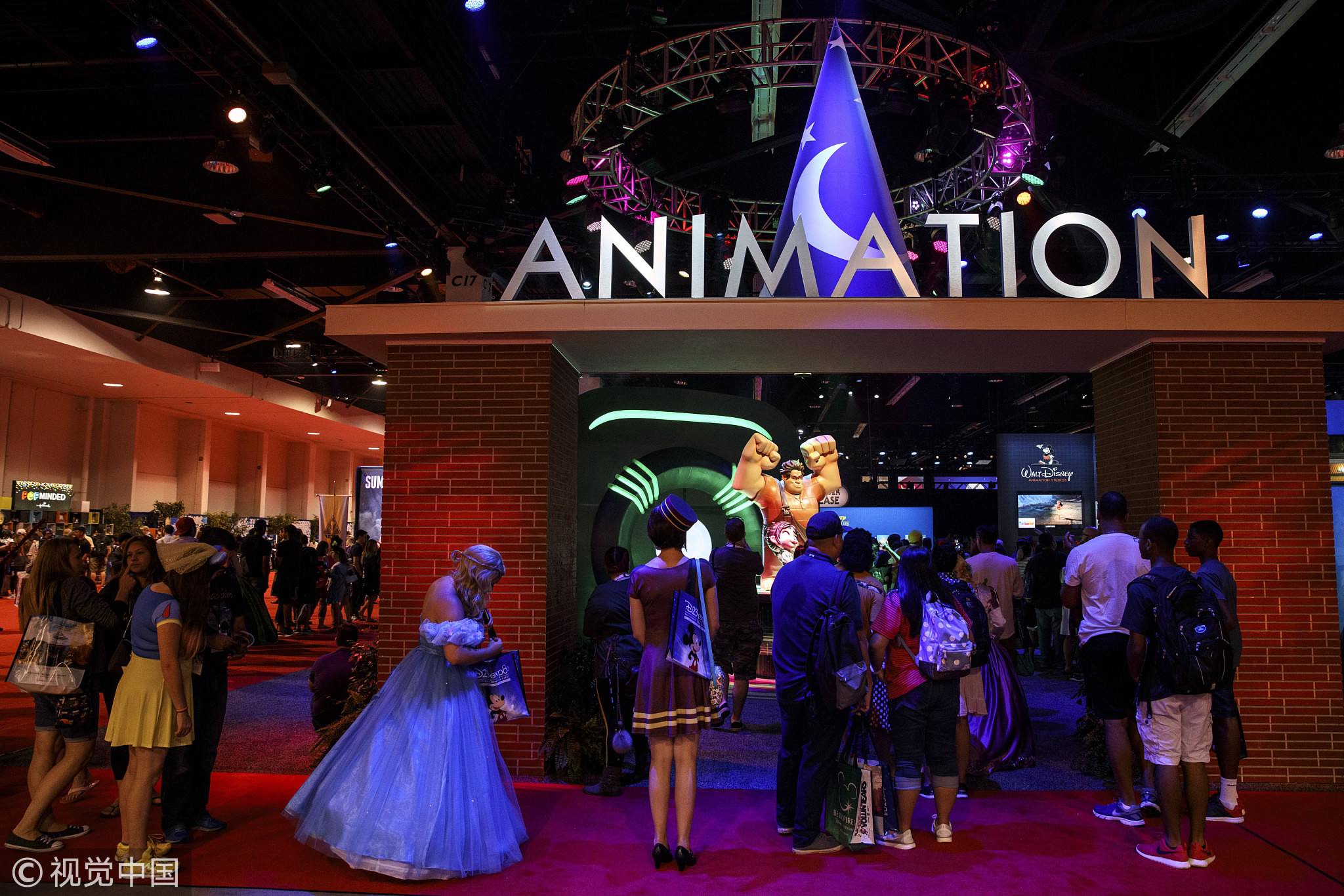
Opinions
16:27, 05-Mar-2018
Opinion: The 90th Oscar vs the $900-mln Spring Festival box office
Guest commentary by Han Hua

Number "9" means luck and sustainability in Chinese. And the country's box office, in the inertia of breaking records, created a new momentum by exceeding 900 million US dollars in just seven days during the Spring Festival. Topping the list of blockbusters were movies labeled as "Created in China", such as Red Sea Operation, Detective Chinatown, etc.
China achieved the record box office considering much of the 90th Oscar-nominated films were not shown in China yet.
Is it a happy surprise for everyone? Definitely not for Hollywood.
So is this an indication that Hollywood needs China more than China needs Hollywood?
Yes and No.

People are waiting to see movies at a cinema on February 16, 2018 in Taiyuan, capital of Shanxi province, China./VCG Photo
People are waiting to see movies at a cinema on February 16, 2018 in Taiyuan, capital of Shanxi province, China./VCG Photo
Yes, because China have more screens than the US - 49,000 so far, of which 38,300 are 3D screens. China have an ever-growing moviegoer population, coupled with increasing movie-watching frequencies.
Domestic films have covered more genres from action to sci-fi, more themes from history to contemporary romance. Chinese investors own the largest movie theater chain in the world, as well as stakes in major Hollywood studios. Chinese government also passed a law on movie promotion in March 2017, dedicated to integrating more resources in rural areas as well as to introducing more products to the world.
At the same time, Indian productions and other Sino-foreign (except US) co-productions take the turns of box office hits with domestic films, whereas Hollywood productions started suffering from flopping performances, such as the latest “Star Wars”. In this sense, China is already the largest movie market which every player is targeting, even though it is still No. 2 in box office in the world.

A girl is watching movie posters at a cinema on March 3, 2018 in Chongqing, China/VCG Photo
A girl is watching movie posters at a cinema on March 3, 2018 in Chongqing, China/VCG Photo
No, because we are still far from being a ready film industry - from talent nurturing, originality, branding, marketing, distribution and merchandising to monetizing success from box office and creating a long-tail effect beyond border, as part of a culture confidence restructure. Not to mention the exchange of our know-how.
China and the US have to renegotiate every five years a WTO agreement that shape relations between the two countries' film industries. It was due in February 2017 but talks were postponed.
Back in 2012, when the then US Vice President Biden led the talks, he brought back home an encouraging deal: China would boost its film screens to 40,000 by 2016 from 10,000 then, and would import 34 movies from Hollywood instead of the original 20, and the box office revenue share was bumped up to 25 percent from a mere 13 percent.
At that time, Chinese film industry felt real threats at every aspect. However, it managed to deliver all, making China a very appealing market to Hollywood films.

The Great Wall Premiere - Zhang Yimou attends the premiere of Universal Pictures' 'The Great Wall' at TCL Chinese Theatre IMAX on February 15, 2017 in Los Angeles, CA, USA./VCG Photo
The Great Wall Premiere - Zhang Yimou attends the premiere of Universal Pictures' 'The Great Wall' at TCL Chinese Theatre IMAX on February 15, 2017 in Los Angeles, CA, USA./VCG Photo
The New York Times recently published an opinion piece by famous director Zhang Yimou. According to him, “Chinese audiences provide Hollywood with huge profits, but what does China’s film industry gain in return?” Apparently he, as the representative of domestic players, wants more intangible assets than money.
The home of best animations, Disney is already taking the lead in that aspect. It set up a five-day, tailored and intensive Disney-China Animation Exchange Program three years ago, supported by China Film Bureau, to suit the needs of Chinese film players. Andrew Millstein, president of Walt Disney Animation Studios, told Xinhua News Agency, "It's an opportunity to exchange ideas and share our approaches to filmmaking, production, marketing, distribution and our underlying concept of how to create a healthy and vibrant studio."
While Millstein is playing the humble card by wooing money and market from China, these are exactly what China’s film industry needs to upgrade itself into a new era: To fill the gap between the industries by learning directly from the world's leading studios, to observe the facilities and hardware and to learn new ideas and creativity.

Attendees wait in line to take pictures in the Walt Disney Animation Studios area during the D23 Expo 2017 in Anaheim, California, US./VCG Photo
Attendees wait in line to take pictures in the Walt Disney Animation Studios area during the D23 Expo 2017 in Anaheim, California, US./VCG Photo
The last sentence of Zhang’s NYT opinion piece read, “Both sides must travel farther than they imagined in order to know each other better and explore the possibilities for a fantastic future.”
The inspiration is mutual. The legacy of Oscar and the momentum of Chinese box office will shake hands and walk side by side, like Chinese Yin and Yang, to work in a more collaborative and creative way.
(Han Hua is a fellow with the Chongyang Research Institute of Renmin University of China. The article reflects the author's opinion, and not necessarily the views of CGTN.)

SITEMAP
Copyright © 2018 CGTN. Beijing ICP prepared NO.16065310-3
Copyright © 2018 CGTN. Beijing ICP prepared NO.16065310-3